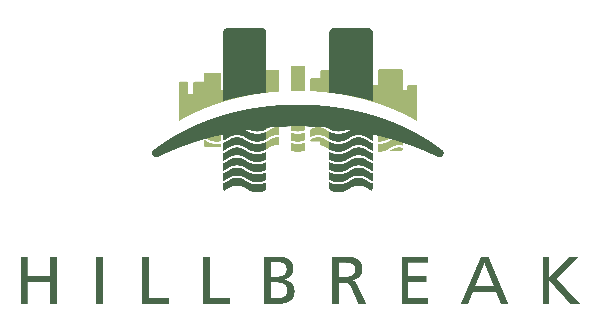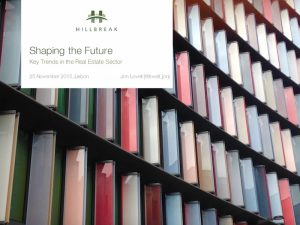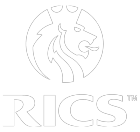Towards the Circular Economy through Urban Innovation
In an article featured by PLACETECH, Lucy Matchett, Senior Consultant at Hillbreak, shares lessons from Amsterdam on ways in which innovative design and technology are being deployed to advance the circular economy.
The Netherlands is renowned for innovation and creative responses to global megatrends. For example, and despite geographic constraints, The Netherlands has recently become the world’s second largest exporter of food by value, second only to the United States, which has 270 times its landmass’[i]. It has also been paving the way for high tech water management for a number of years, as much of the country sits below sea level[ii]. Now, its cities must respond anew to the opportunities and challenges posed by urbanisation and population growth, despite already being one of the most densely populated countries in the world[iii].
Is the circular economy the solution?
The circular economy offers The Netherlands a solution to these unprecedented challenges. Understanding that the current model of economic growth is unsustainable and detrimental to society, the circular economy is a restorative and regenerative alternative[iv]. Based on a system which decouples ‘economic activity from the consumption of finite resources’[v], the circular economy encourages value to be found in typical waste materials and products. The Netherlands see this approach as a viable alternative to economic growth and prosperity for its citizens. The growth in population and further urbanisation without this paradigm shift would otherwise lead to environmental degradation, pollution and, potentially, social unrest as people compete for limited space, food and commodities.
The Netherlands therefore have chosen to develop a circular economy by 2050[vi]. Within the geographic constraints of their cities, a circular economic model would help to ensure that growth is sustainable. For example, in Amsterdam and Utrecht alone, it is expected that population figures will be 150,000 greater in both cities by 2040 (growing to 950,000 and 450,000 respectively). Beyond the binary growth opportunities this will bring for the market, how this impacts the real estate sector will be realised in two key ways: first in the design of buildings and the products within them for re-use and longevity (otherwise known as cradle to cradle design[vii]); and secondly, in the shared use of space and amenities.
How is the Dutch real estate market responding?
The Edge Olympic[viii]and Bajes Kwartier[ix]in Amsterdam are two great examples of how the circular economy is being integrated as both projects are renovating and reactivating areas that are already part of the city fabric. The Edge Olympic is Edge Technologies’ 11,117 sq m Grade A office, whilst Bajes Kwartier is an exciting redevelopment of a 1970s prison into a mixed-use quarter. Both developments, although at different scales, have firstly considered the re-use of buildings already positioned within the city, and then additionally, the flexibility of that space once redeveloped.
The result is a modern ‘inspiring workplace’ at The Edge Olympic which has used a smart, digital infrastructure to allow occupiers of the building to optimally utilise the space in the building. This type of building management not only improves the accessibility of the space, but also leads to energy efficiencies too, with comfort control being demand-led, taking into consideration real-time occupational density and personal comfort preferences.
At Bajes Kwartier, the circular economic model is being advanced through a number of different approaches. One example of how flexibility will be achieved is through the planned shared amenities and sustainable mobility. Smart landscape planning, for example, will ensure adequate provisions of green space for all the occupants, despite limited private outdoor space. In addition, carefully curated transportation routes will ensure that shared vehicles and active alternatives (walking and cycling) are preferred.
Another example which has circular economy principles incorporated into the entire design, is The Circl, a novel gastronomic venture in Amsterdam[x]. Although a temporary use of space, this building shows what is possible when cradle to cradle principles are designed throughout a building. Built for future disassembly and re-use, this energy positive building worked with a number of suppliers to offer them long-term services rather than a one-off product which has enabled this building to use 60% fewer virgin materials. For example, Mitsubishi provided a lift service rather than a product which ensured they didn’t over specify the number of lifts in the building and have designed them to last with easily replaceable components.
The future of the circular economy within the real estate sector in particular will be enabled and will rely heavily on data. As this area evolves, the real estate sector will see exciting disruptions. MADASTER, based in Amsterdam, creates digital material passports[xi]which will allow manufacturers to give their materials an identity so that value can be recreated at the end of their current use. Applied successfully, this type of innovation could have implications from a regulatory perspective too, as authorities change from a system of taxing labour, to the taxation of materials to further reduce the use of virgin and non-renewable materials.
Is the circular economy the future?
The circular economy presents The Netherlands and other economies with a practical and desirable means of realising better growth and prosperity. What is already clear from the Dutch approach is that partnerships will form, and profitable business models will follow, once a compelling, overarching vision (to develop a circular economy by 2050) is in place.
These insights were gathered during a study tour of Amsterdam and Utrecht organised by the Urban Land Institute, a non-for-profit professional research body focused on creating leadership in the responsible use of land and in creating and sustaining thriving communities.








